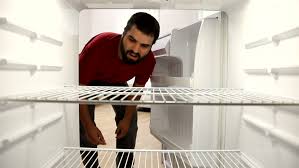Study: About 2M low-income British households resort to unplugging refrigerators due to soaring electricity bills
11/22/2023 / By Belle Carter

According to a study conducted by the Joseph Rowntree Foundation (JRF), about two million poor households in the United Kingdom are resorting to desperate measures such as turning off refrigerators or freezers, just to be able to cope with ever-soaring bills.
The independent social change organization “working to solve U.K. poverty” said that in October, a quarter, or 2.8 million, of low-income households had incurred debts to pay for food, a third had sold belongings to raise cash, and one in six had used so-called community “warm rooms.” Also, four out of five households on universal credit were going without food, switching off heating and not replacing worn-out clothing. Nearly a million households said that since May, they had to disconnect their fridge or freezer for the first time.
“Millions of families unplugging their fridges and freezers is the latest chapter in a long-running story of hardship,” Peter Matejic, chief analyst at the JRF, was quoted as saying. “People risk becoming sick from eating spoiled food and going without healthy, fresh food. This risks lasting harm to the health of millions.” He also said that the picture is not getting better for poor families even as inflation starts to come down. “Too many are taking out loans to pay for food, selling their belongings and using warm banks to try and get by,” he said.
?? 2 million households have turned off their fridge or freezer to save money
?? Nearly half of these households did this for the first time in the last six months
? 2.8 million households hold debt that they had taken out to help pay for food
?(1/3)https://t.co/nqa4lgGACU— Joseph Rowntree Foundation (@jrf_uk) November 14, 2023
The findings came amid concerns among poverty charities that ministers are looking to reduce financial help for low-earning families in the incoming autumn statement next week by freezing the value of working-age benefits from next April, which would raise billions for the Treasury but make about nine million households lose out on an estimated average of £460, and push lower income families even further into poverty. JRF said that although the government had allocated more than £12 billion in targeted cost of living support, and inflation has begun to fall, 7.3m households had gone without food and other essentials in the last six months. This indicates that the crisis is far from over.
The paper also said there were rising concerns about the decreased financial help for low-income families that the government is expected to announce in its autumn spending statement next week. “It’s unconscionable that the government is reportedly considering cutting struggling families’ benefits to fund tax cuts,” Matejic said. “In the upcoming autumn statement, benefits must be increased in line with inflation and local housing allowance must be unfrozen to support private renters with their housing costs.”
Over 4,000 households were surveyed in the JRF’s study on the impact of the cost of living crisis.
JRF warns: Universal credit dependents are most likely to be without essentials
Low-income groups that are most likely to be going without essentials are those dependent on universal credit. They are black, Asian and mixed ethnicity households; families with a disabled member and families with children, according to JRF. Universal credit is a benefit to support low-wage earners and unemployed people in the United Kingdom.
Meanwhile, a Department for Work and Pensions spokesperson stated that the cost of living payments have provided a significant financial boost to millions of households, just one part of the record £94 billion support package they have provided to help with the rising cost of bills. “This includes a 10.1 percent rise to benefits earlier this year, and we’re investing £3.5 billion to help thousands into jobs – the best way to secure their financial security in the long term,” he said. “Ultimately, the best way we can help families is to reduce inflation, and we’re sticking to our plan to halve it this year, taking the long-term decisions that will secure the country’s financial future.” (Related: U.S. household income FELL in 2022 for the third straight year due to inflation and rising cost of living.)
Follow EconomicRiot.com to read more articles related to the imminent downturn of the world’s economy.
Sources for this article include:
Submit a correction >>
Tagged Under:
big government, Bubble, chaos, Collapse, debt bomb, debt collapse, desperate measures, economic riot, economy, finance riot, freezers, fridges, Inflation, Joseph Rowntree Foundation, JRF, market crash, money supply, panic, pensions, risk, UK, warm rooms
This article may contain statements that reflect the opinion of the author
RECENT NEWS & ARTICLES
COPYRIGHT © 2017 BUBBLE NEWS





















